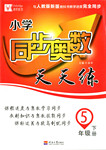题目内容
bec__se
- A.ae
- B.ai
- C.au
- D.ay

 同步奥数系列答案
同步奥数系列答案In England recently three foreign gentlemen came to a bus stop and waited. About five minutes later, the bus they wanted came along. They were just going to get on when suddenly there was a loud noise behind them. People rushed onto the bus and tried to push them out of the way. Someone shouted at them. The bus conductor came rushing down the stairs to see what all the trouble was about. The three foreigners seem all at sea and looked embarrassed (窘迫的). No one had told them about the British custom (习惯)of lining up for a bus that the first person who arrives at the bus stop is the first person to get on the bus .
Learning the language of a country isn't enough. If you want to have a pleasant visit, find out as much as possible about the manners and customs of your host country. You will probably be surprised just how different they can be from your own. A visitor to India would do well to remember that people there consider it impolite to use the left hand for passing food at table. The left hand is supposed to be used for washing yourself. Also in India, you might see a man shaking his head at another to show that he doesn't agree. But in many parts of India a shake of the head means agreement. Nodding your head when you are given a drink in Bulgaria will most probably leave you thirsty. In that country, you shake your head to mean 'yes'— a nod means ‘no’. At a meal in countries on the Arabic Peninsula, you will find that your glass is repeated refilled as soon as you drink up. If you think that you have had enough, you should take the cup or glasses in your hand and give it a little shake from side to side or place your hand over the top.
In Europe it’s quite usual to cross your legs when you are sitting talking to someone even at an important meeting. Doing this in Thailand, however, could bring about trouble. Also, you should try to avoid (避免)touching the head of an adult ——it's just not done in Thailand .
【小题1】 The British people tried to push the three gentlemen out of the way, because the gentlemen _________.
| A.were foreigners | B.didn't have tickets |
| C.made a loud noise | D.didn't line up for the bus |
| A.If you want to have a pleasant journey in a foreign country, you only need to learn the language of the country. |
| B.In India it is considered polite to touch an adult’s head. |
| C.To cross one's legs at an important meeting in Europe is a common habit. |
| D.In Bulgaria, if you don’t want to drink, you should cover the cup with your hand. |
| A.People's Everyday Life | B.Mind Your Manners |
| C.Habit is quite important | D.Language and customs |